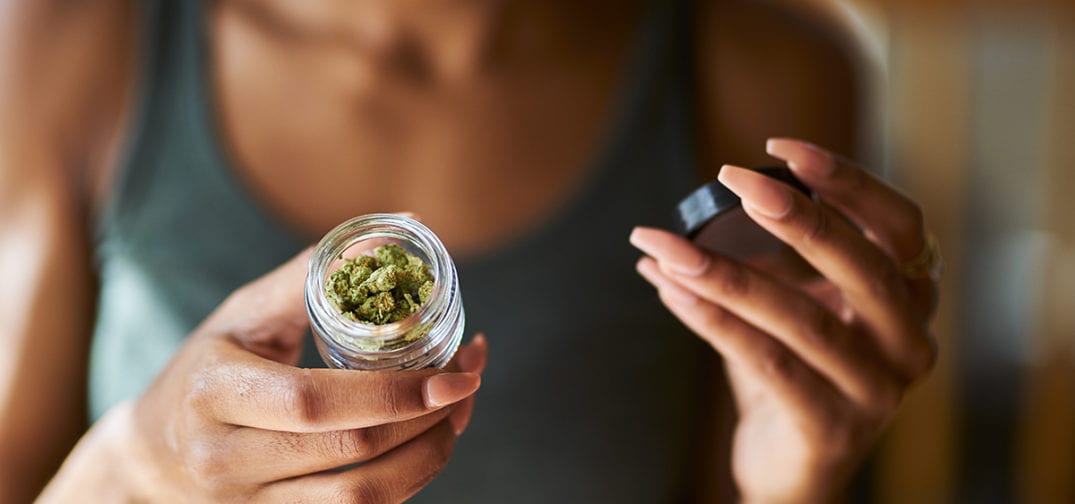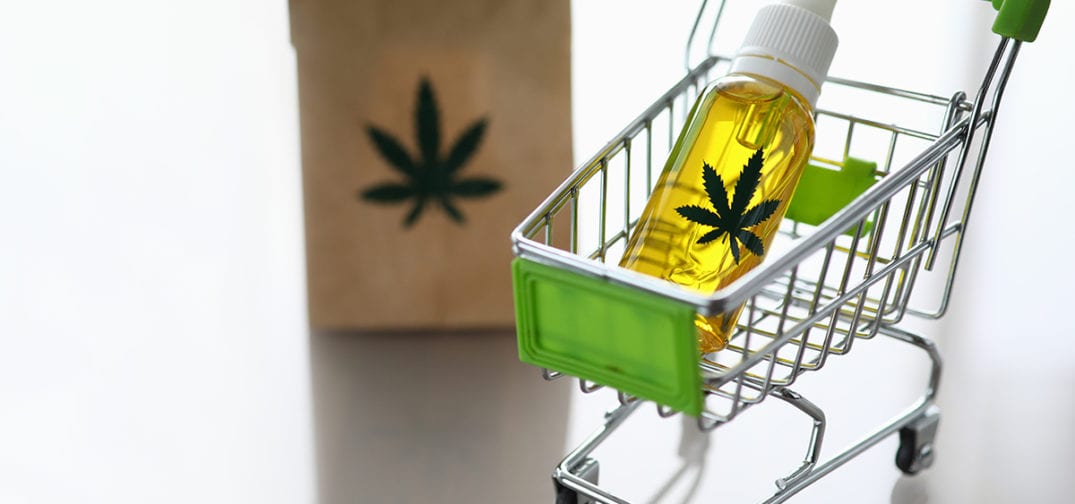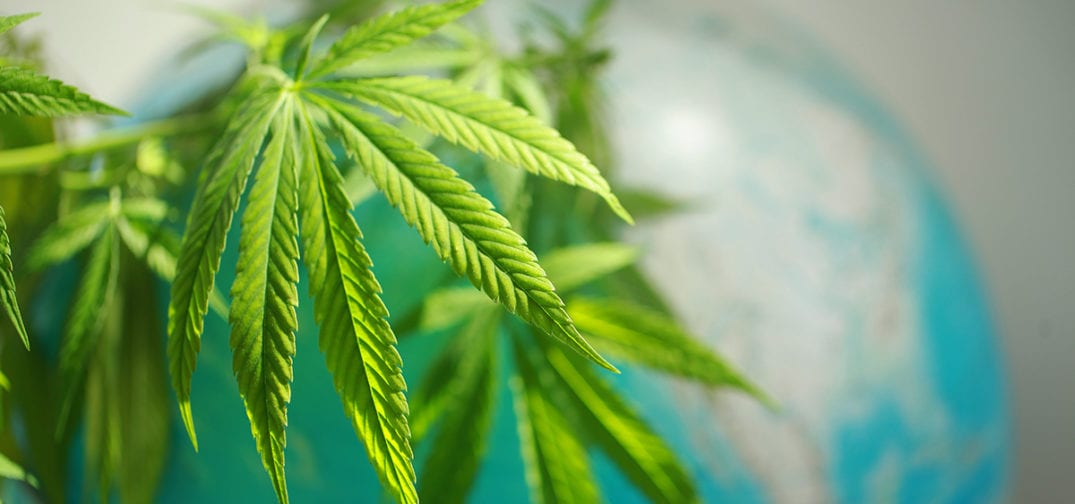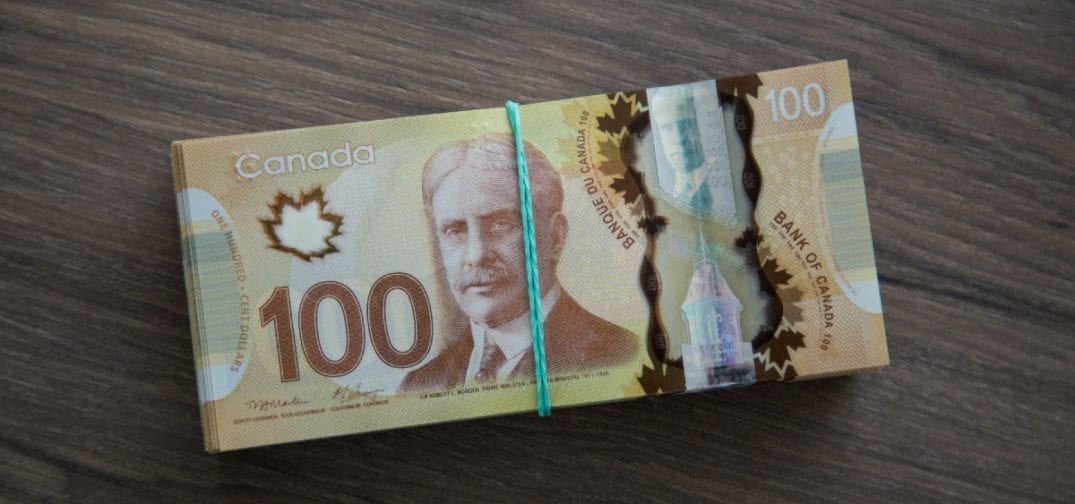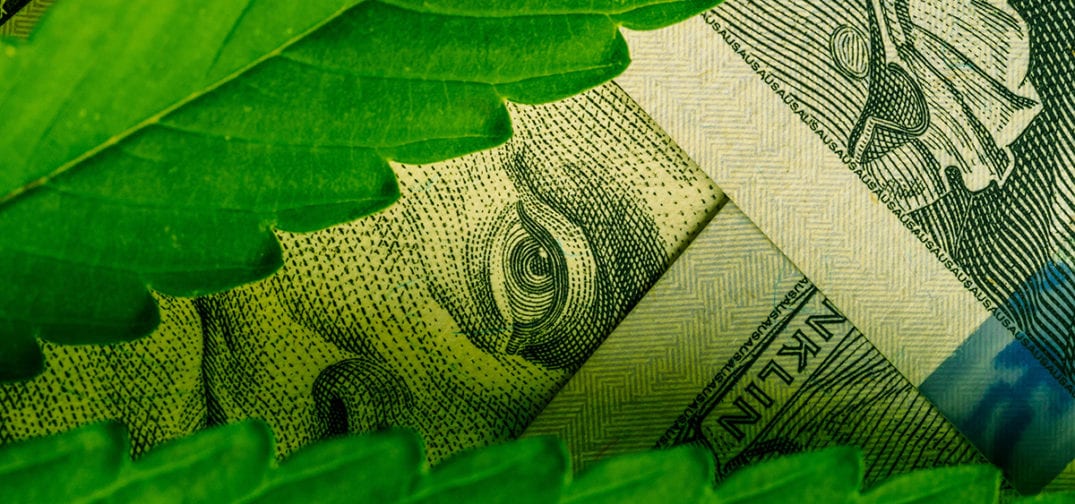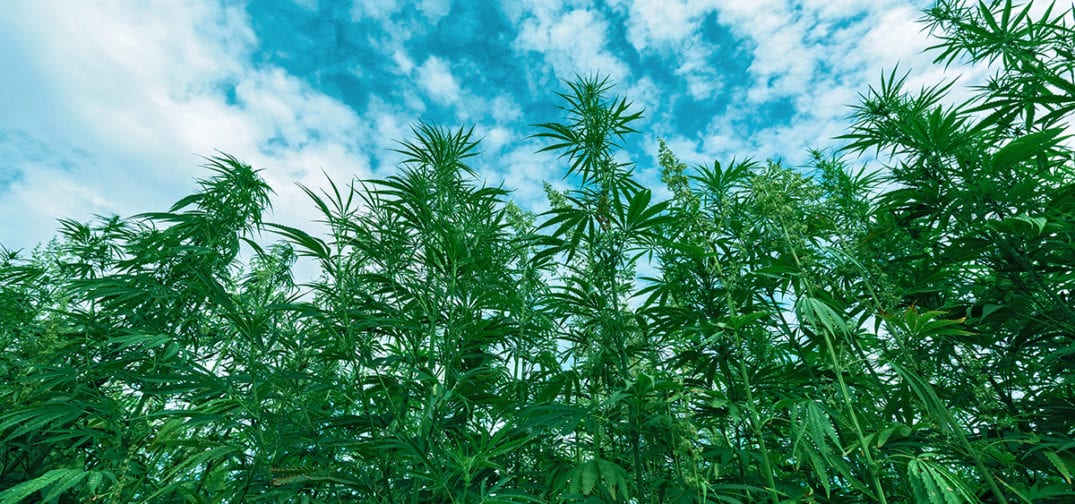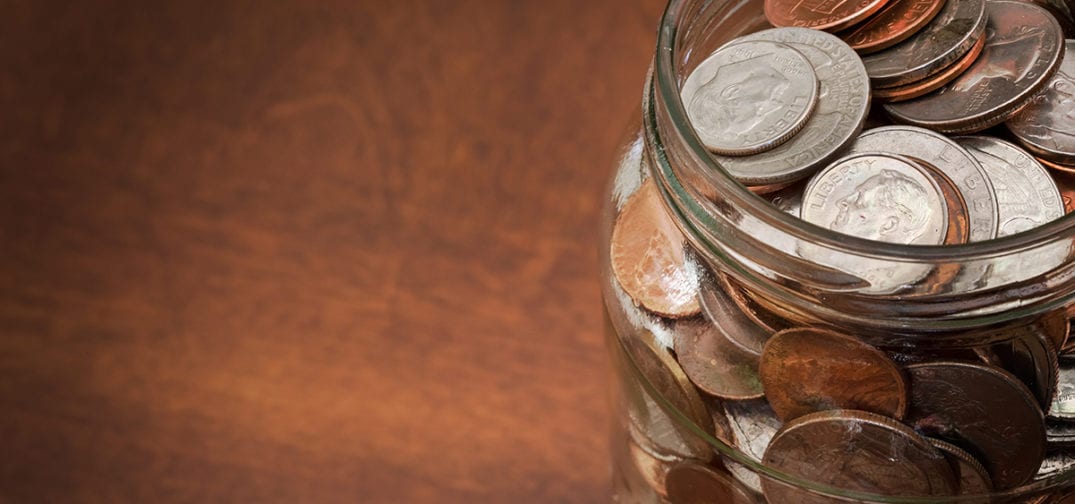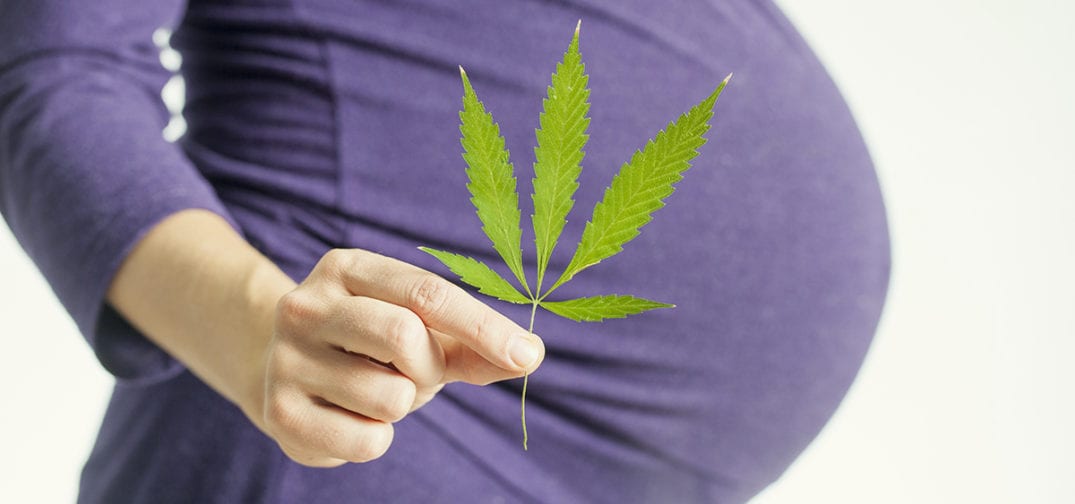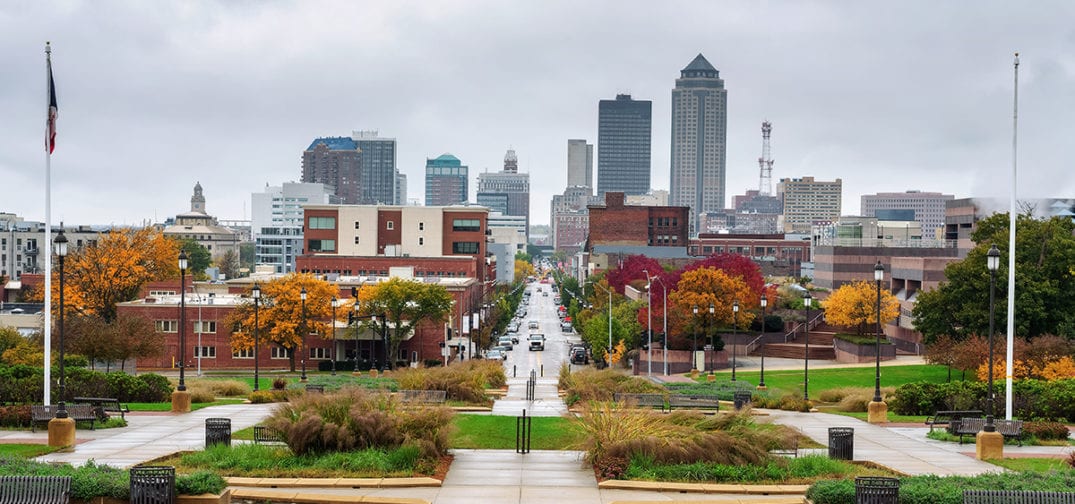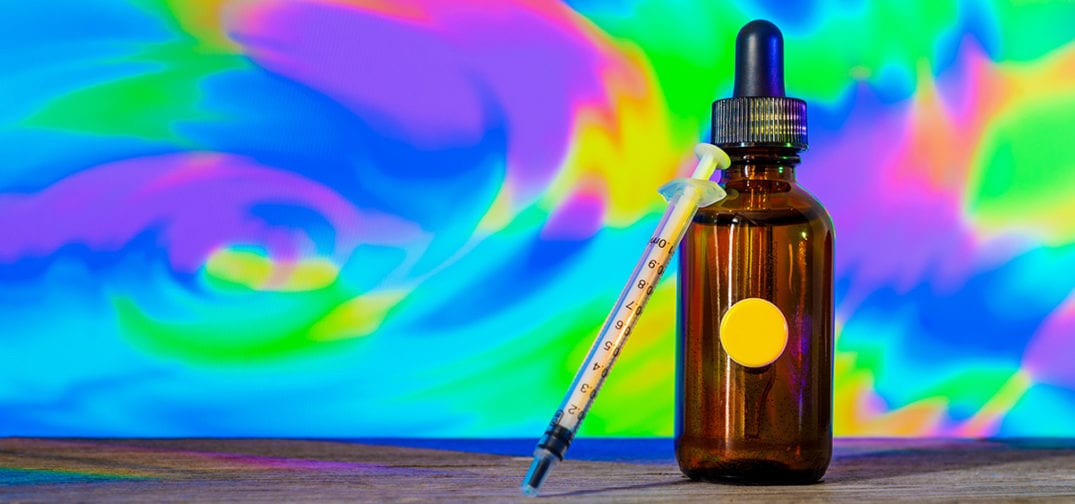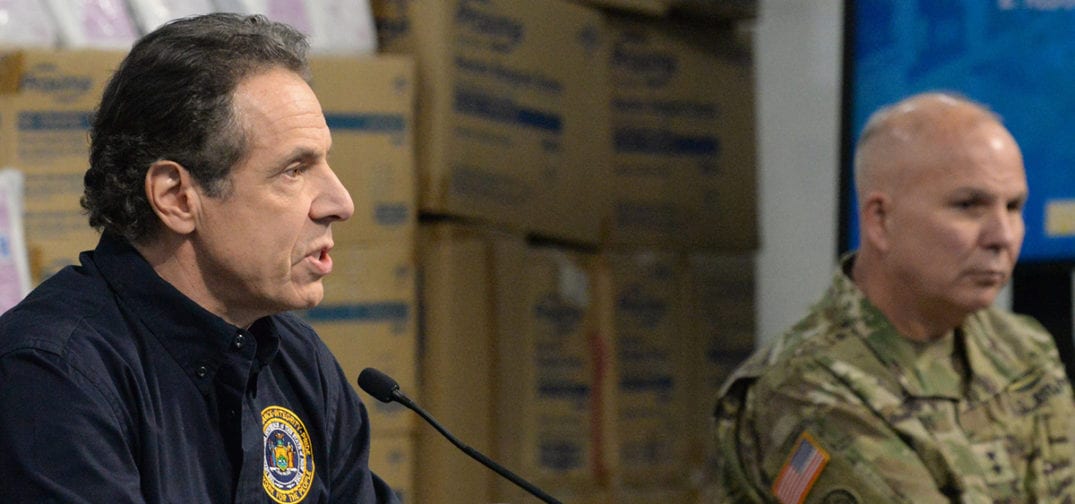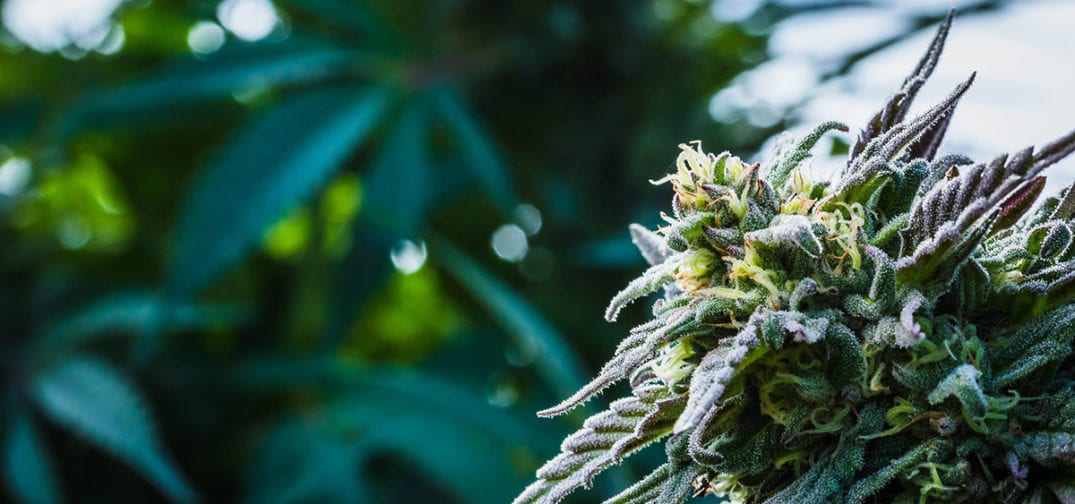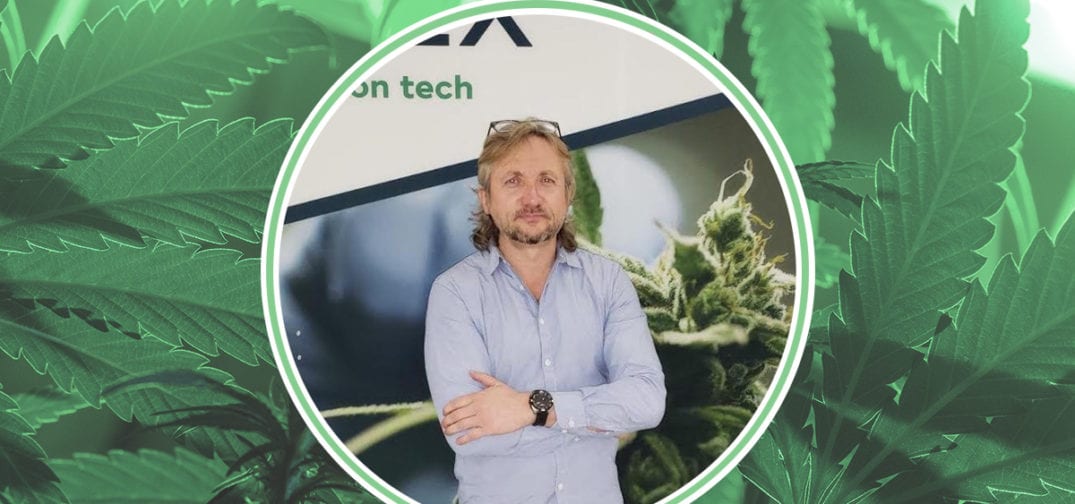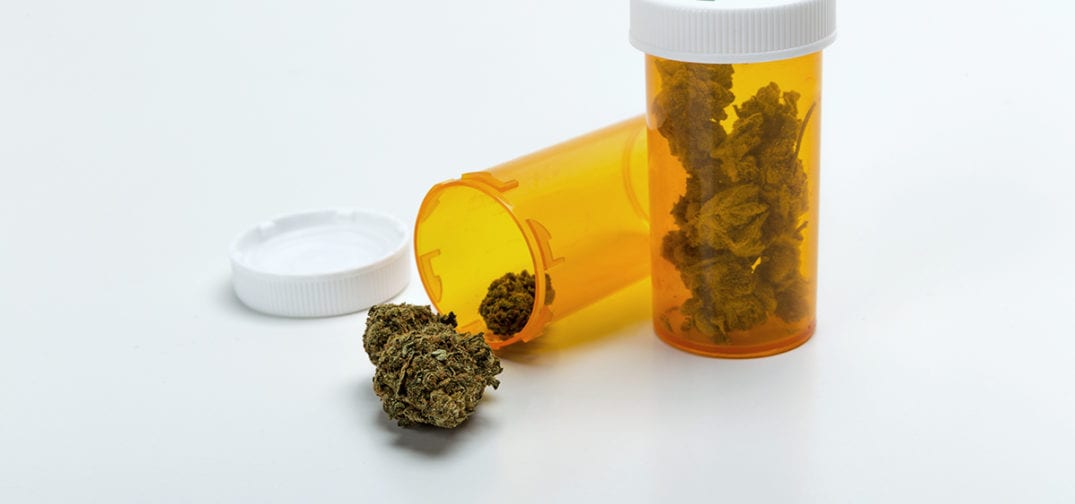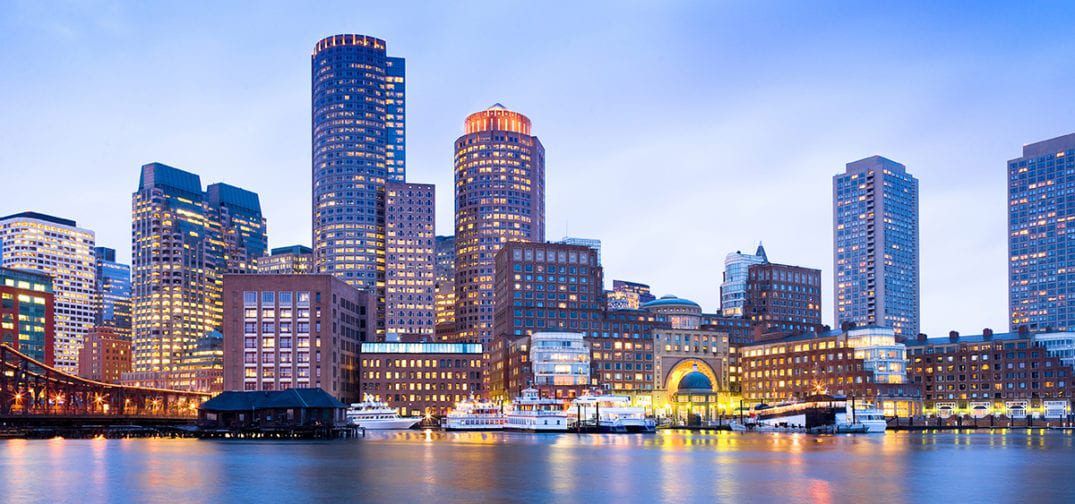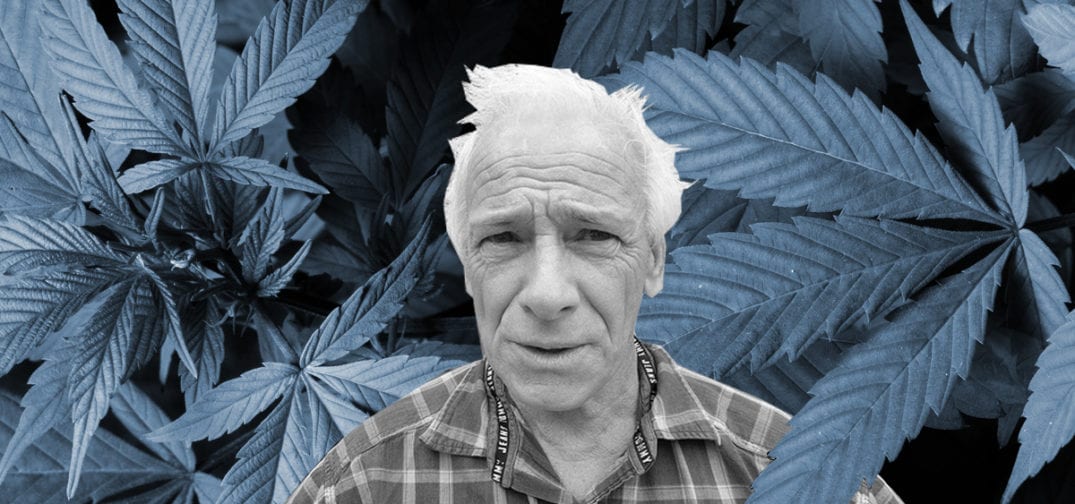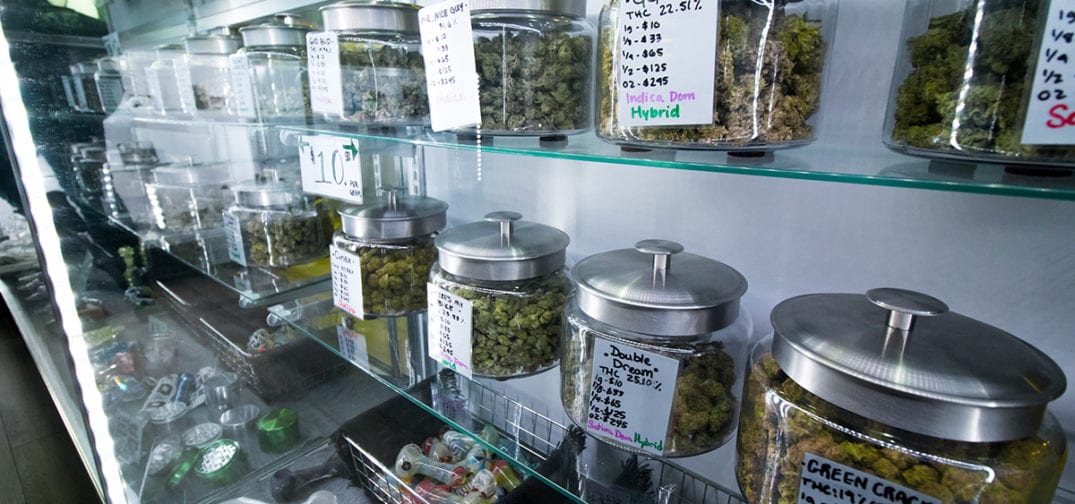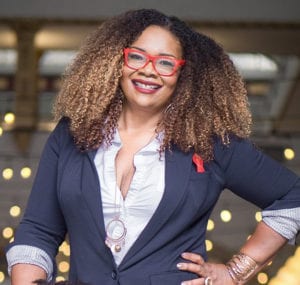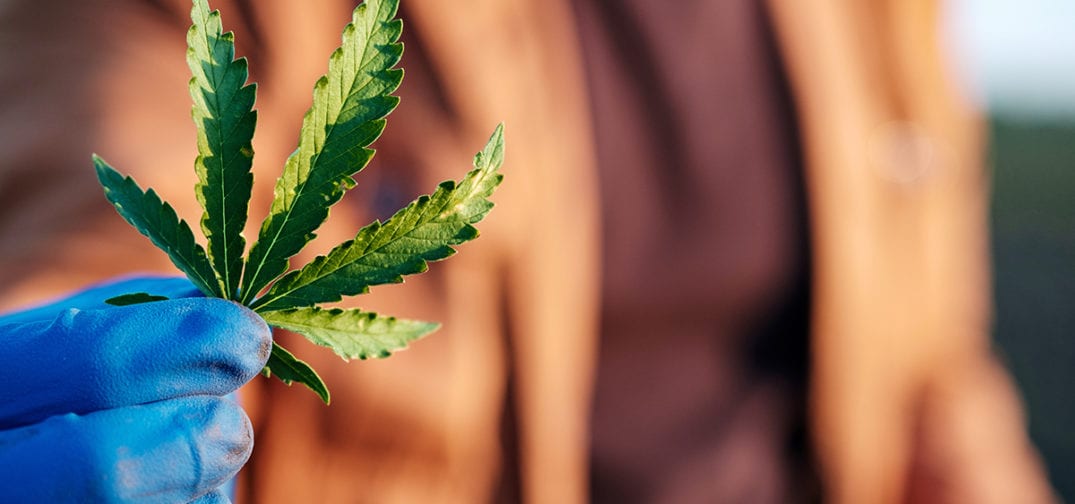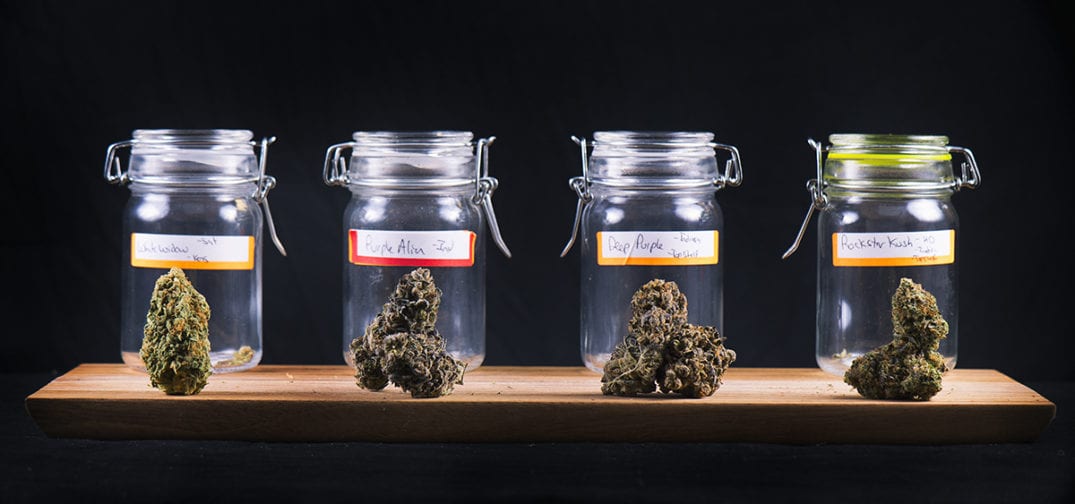Chris joined our podcast host TG Branfalt recently for a conversation about GrowEx and the company’s high-tech cultivation capabilities. In this interview, Chris shares the story that brought him into the cannabis space, discusses the industry’s need for more advanced indoor growing systems, explains what exactly the GrowEx system is capable of and how the company’s innovations could revolutionize indoor cultivation practices, and more.
Scroll down and listen to the interview via the media player below, or keep scrolling to find a full transcript of this week’s Ganjapreneur.com podcast episode!
Listen to the podcast:
Read the transcript:
Commercial: This episode of the Ganjapreneur Podcast is made possible by Dama Financial. Get access to a secure, transparent banking solution with Dama Financial. Secure your cash, make and receive electronic payments, and stop worrying that your account will be shut down for being a cannabis business. Protect your money with an FDIC-insured bank account and discover Dama’s suite of sustainable, compliant financial products, including merchant processing. Schedule a free consultation at damafinancial.com today, or call 877-401-3262. Dama Financial is an agent of its financial institutions and money transmitters.
TG Branfalt: Hey, there. I’m your host, TG Branfalt, and thank you for listening to the Ganjapreneur.com podcast, where we try to bring you actionable information and normalize cannabis through the stories of ganjapreneurs, activists, and industry stakeholders. Today I am joined by Chris Treville. He’s the co-founder of indoor cultivation tech company, GrowEx, a patent-pending technology that controls pests and mildew without using pesticides or chemicals. How are you doing this afternoon, Chris?
Chris Treville: Great. Thank you.
TG Branfalt: So tell me about yourself, man. Tell me about your background. How’d you end up in the cannabis space?
Chris Treville: Well, in 2014, my brother and I decided to look at it closer. It was starting up at ground-zero level, which is what we’re calling it in terms of large-scale, commercialized, legal cannabis commercialization, let’s say, in Colorado. So we started visiting some sites to see how that was taking place, who was doing what, how are they growing, really just interested in taking some notes and visited a few sites in the Denver area. That was in 2014, and then, of course, we went to the very first Las Vegas MJBiz show, which at the time was at the Rio Hotel in Las Vegas.
TG Branfalt: Sounds like a good time.
Chris Treville: Yeah. And since then, it just kind of kept escalating from one year to the next, just more shows, more visits, broader geography, not just Colorado, but also in Canada as Canadian law came into place federally, of course. Uruguay came on board, and then now we’re seeing a whole slew of United States that are coming on board, whether it’s medical or recreational, European countries, African countries, Australia. So it’s a worldwide movement, and we’ve been right on the ground floor of it since… I would say actually… I said 2014, but really it was 2012 that we started doing these visits, because 2014 was when we started to actually spend money towards it, which was an R&D, research and development effort on a small scale to start proving our first concept, which is what you introduced, the pest control system.
TG Branfalt: Tell me about when you first sort of started this R&D process, going to these sites. What were some of the things that stood out to you during those initial visits?
Chris Treville: Well, that’s a good question because our existing company at that time, my brother and I were involved and we are still involved in what we call controlled atmosphere technology. What that means is that we build storage facilities for fruit and vegetable farmers all across North America. So basically, it’s a facility kind of like a warehouse, but it’s got gas-tight rooms. I call them bubble rooms, so there’s no penetrations at all in those rooms, kind of like an operating room, if you will, but on a large scale, where millions of pounds of biomass are stored. And this biomass, in particular, is fresh fruit, just for an example, that gets harvested by the farmer, and then it gets held at low temperature in a fresh state, so kind of fridge-like conditions.
We control humidity as well, and we also control all the gases. The pertinent gases are CO2, oxygen, nitrogen, ethylene, ethanol. Those are all gases that exist inside these bubble rooms, and we have machinery, industrial-caliber machinery, that needs to control these gases to very precise decimal points, two decimal points actually in percentages. And that is what will dictate the quality holds that we’ll keep inside those storage facilities. So each variety, each cultivar of fruit or vegetable has its own protocol of temperature, humidity, and pertinent gases.
So that’s our expertise. We’ve been doing this for many years. It’s actually a Dutch background, the technology in question, Holland being world-renowned for agritech. And my brother was a senior engineer at Storex, which is probably the largest company in the world that specializes in that field. So when we did the visits with the cannabis facilities, our eyes and ears were mostly focused on the technology part of things, like how the building was built. Were there air leaks? Was there contamination involved? How energy efficient was the equipment? Because, in essence, the biomass for cannabis also needs to be controlled in the same way as the fruits. And since they’re plants, massive amounts of… millions of pounds of plants that are growing and that they require also specific protocols of temperature, humidity, and all the pertinent gases as well that affect yield, that affect quality, and affect consistency harvest after harvest.
TG Branfalt: So for that two years before you actually started putting money into the cannabis tech, what were some of the considerations that you and your partners and your brother were sort of taking on when trying to answer this question of whether or not you were going to start investing?
Chris Treville: Well, I mean, the first consideration logically for us was the building itself, like the actual structure, the shell, if you will, because that was also our main focus with our other farmer clients. And by the way, these are the biggest fruits producers in the world, so they’re large facilities that we build. So the structure was the first thing to look at, and we saw that the industry, the cannabis industry, was going towards a greenhouse model or a standard building, kind of like a warehouse with rooms built inside there. But they weren’t really paying attention to the detail that are necessary for such an industry, so for controlling such amounts of biomass on such a large scale.
So that was the first point of engineering on paper that we worked on, and there were a lot of parallels that were easy to bring over from our fruit clients to the cannabis clients. But then that wasn’t enough because we needed to be able to explain to a grower why that had an impact on the yield and on the quality. So we had to get involved… As a next step, we had to get involved also in terms of the actual way the plants grow, what kind of configuration of the canopy, what kind of lighting, what kind of irrigation, what kind of growing mechanism, if you will, throughout the entire facility. Not only growing, but from seed all the way to trimming, drying/curing, and packaging. So it started off in 2014, like I said, but it kept on going all the way to 2019 really.
TG Branfalt: Yeah. And you had mentioned earlier you had noticed some of the energy efficiency, what was going on at these centers. And a couple of years go, there was a report, and there hasn’t been too many that have looked at how much energy the cannabis space uses. And this report, in particular, found that it used as much as some larger data centers, server rooms. So what did you notice in terms of energy efficiency? What stood out to you? Was it very inefficient? What were you noticing?
Chris Treville: Yeah. I mean, that is a very big concern. The Dutch agritech has taught us over the last 20 years that energy efficiency is a big concern for farmers. I mean, they’re always looking for the more efficient tractor, the more efficient storage facility, industrial-caliber equipment to control temperature, humidity. There’s a real push towards finding ways to cut costs and to be more efficient with an industrial-caliber farming operation, whereas the cannabis industry has not looked at that at all. Even today, it’s still more focused… The industry, in general, is still more concerned about just the mere fact of being in business, the whole idea of getting a license to produce a legal substance that used to be prohibited, right? So that whole topic of legalization, getting the license, that still takes more precedence in the business plan.
And then the rush to market is the other big points that companies are looking at mostly, so how much volume of production they can make in the quickest time possible in as many places as possible. And the concern of energy efficiency is definitely not in their agenda. So we’re seeing an industry that’s growing very quickly without any concern whatsoever for energy efficiency. So that is, for me, a major issue that the industry is going in the wrong direction for that reason. So that has pushed us even more so to fine-tune that design so that we can get a model that’ll produce a very high yield per square footprint, and it’ll be able to do that using half the amount of energy that the current big players are using.
TG Branfalt: Describe this tech, the GrowEx tech, and how it is more energy-efficient. I said this at the top when we were sort of introducing ourselves. I don’t grow anything, and I’m killing a fern upstairs. So make it sort of simple enough so that a guy who is currently killing a fern can understand.
Chris Treville: Okay. Well, I mean, first of all, we recruited very important team members inside GrowEx. The GrowEx team is comprised of three growers who have a lot of experience. So we are, if you will, a team of expert growers, expert engineers of various kinds: mechanical, electrical, structural engineers, and some smart marketing people. So those people have been working on small-scale tests for the last five years, and we’re almost… I would say we’re about 80% completed our first large commercial site, which is near Montreal. And we had one site… We had data from another site, which was smaller. I still call that a small site, but it was really a commercial site also. It ran for about three years in Colorado on about 2,000 plants. So we had data from about three years on 2,000 plants.
TG Branfalt: And were those plants going into the market?
Chris Treville: Yeah. Yeah, those plants were going into the market in Colorado. So I call that Version 1.0, I would say, of the GrowEx system. And then the Montreal site that we’re 80 to 90% finished is what I’m calling Version 2.0, which is a larger scale. It’s on about 10,000 plants, as opposed to 2,000 plants.
TG Branfalt: Wow.
Chris Treville: So it’s a bigger step, right? Basically, the formula is you’ve got a bubble room, which means that if you can imagine a plastic bag, the plant is inside that plastic bag. Okay.
TG Branfalt: Okay.
Chris Treville: But of course, it’s not just one plant. It’s a whole room full of plants that’s inside a large plastic bag. So what does the plastic bag do? And by the way, it’s not made out of plastic. It’s a figure of speech I’m using. But what does it do? Well, it basically gives us complete control of everything that’s got to do with temperature, humidity, CO2, oxygen, nitrogen, and ethylene, all those gases that are pertinent to the plant’s development. And we can literally dial in down to a granular science exactly what we need in terms of protocol to get that perfect growth environment and stability also, which is a big key in terms of avoiding powdery mildew, for example, which mildew will proliferate if there are inconsistencies in those temperatures and humidities. So since we don’t have any inconsistencies at all, we don’t have any issues with powdery mildew at all. Therefore, no need for any treatments of any kind.
And then, of course, being in a bubble also avoids any incoming contaminants, whether it’s pollution or insects or whatnot. These bubbles have doors, so we still have humans walking into those rooms, but we’re working on a human-free environment. That’s our next development. But for now, we do still have people walking in. So there’s still a risk of insects, and these are microscopic insects that live outside. They’re all over the place normally in nature. But just like humans, they love those plants. So they’re literally lining up at the door trying to get in. So if there is an issue with too many of these insects coming in at once and a section of the room starts getting contaminated with some insects, then we have an algorithm we came up with to essentially suffocate these insects within 24 hours without affecting the plants.
So that’s our first patent pending. It’s called the PCS system. It’s a pest-control system, which doesn’t use any chemicals. It doesn’t use any outside, any external treatments. It’s purely the same exact temperature, the same exact humidity, the same exact gases, but just in different concentrations. Hence, the algorithm, right? And then the sixth factor is time, which is somewhere around 18 hours or something like that. So it’s a good insurance policy in case something goes out of control on these large, massive rooms full of valuable plants.
So that precision control, I’d say, is already the first step to using less energy because we have little waste of machine run-times. Because we have a very constant machine run-time and we don’t have to compensate for leaks coming into the room and having to compensate so that the system can hold the right amounts of CO2 or the right amounts of temperature or humidity, the machines don’t work as much. So that also helps with energy efficiency. The machines themselves are industrial caliber, so they’re meant to… The design of the machines are very energy efficient as well. Low maintenance as well. So I would say that’s the first topic. And then, of course, the structure is insulated and gas-tight, so that also has a huge impact.
And then the other point of energy efficiency is on the selection of the lights. We use laser LED lights. The short form of that is called LLED. So that’s very advanced because most of the market right now, I would say maybe 85% of the grows worldwide are still using HPS lights, which are good performance lights, but they’re very inefficient in terms of energy. They create a lot of heat. Hence, the fact that the plants have to be four to six feet away from those lights, or otherwise they burn. So you don’t have a good optimization of the canopy. You have to be very far away from the plants. The distance between the plant and the light is big, so that’s why you need these giant rooms with tall ceilings. Very inefficient.
So the LLED lights allow us to come six inches from the plant, and therefore, we can pack more plants in the room. And those lights use a lot less energy. They emit a lot less heat. So that would be a huge consideration there in terms of energy efficiency per gram produced. Since there’s a lot more plants, also a lot more density in terms of the canopy.
TG Branfalt: Are you able to control… Is time a factor, I guess is my question? With this system, do plants take any more or any less time to grow? Because as you said, people are trying to get product to market. And I don’t really grow anything, so does this also impact the growing time?
Chris Treville: Huge, huge. I mean, first of all, time to market is a huge point you just made, and I understand these companies. They get the license. They’re happy. They want to move forward. They’ve raised funds. They want to get to market as soon as possible. So not only are we energy efficient, but also our time to build such a facility is very fast because everything is pre-engineered, pre-fabricated. It’s just a question of assembly, kind of like a Lego, if you will. So it’s a really efficient build-out. And then to your question, the actual timeframe to grow, I mean, all these grow-masters out there who’ve been growing in their garage in the gray markets or black markets, whatever you want to call it, whatever shade of dark you want to call that, that are now operating in the legal market, they’re excellent growers, but their issue is that they’ve been growing in what I call craft growing, like a very small quantity. We’re not talking about millions of square feet of canopy. So it’s a different ballgame completely.
So we’re hitting some numbers right now. This is still early because we’re not fully optimized yet, but we’re talking about somewhere around 90 grams per square foot of canopy. And from the whole process, from the beginning of the plant to dry/cure, including dry/cure, we’re talking about 38 days.
TG Branfalt: Seriously?
Chris Treville: So it’s considerably… It’s about 40%… No, sorry. It’s almost two times faster than what normal people are seeing.
TG Branfalt: That’s incredible. And I don’t really grow anything, but I do know that it takes a hell of a lot longer than 40 days.
Chris Treville: Yes. Usually it’s longer. Like I said, it’s probably close to twice as longer, and the yield is also not as high. And it’s really math. I’m not a grower either, but the guys, the scientists, because really they’re scientists. They’re all masters; some of them are PhD that are on our team. It’s about science. So what it is in layman’s terms, the plant is like a device, if you will, that has X number of let’s call them receptors, which are these areas where light will go through in the process of photosynthesis. And of course, it’s not just light that they absorb. They also absorb CO2. They absorb nutrients. So let’s say that there’s X number of entry points for all this material to go inside the plant to create the energy to allow the plant to grow, right?
TG Branfalt: Yeah.
Chris Treville: Humans have similar points of receptors, i.e., the skin. The skin breathes. We eat obviously. We drink. We breathe through our nose and our mouth. So the plant has all these receptors. So there’s a certain number of these receptors per plant. It’s not an infinite number. There’s a finite number of these. And the formula is basically time, how much time do we feed through those receptors? How many are being fed at the same time, and at what concentration? And we try to basically optimize that.
TG Branfalt: One of the things too that stuck out to me when I started looking at interviews you’ve done and your website, you guys grow vertically as well, right?
Chris Treville: Yeah.
TG Branfalt: Explain why that’s important for efficiency, why you do that, and how you sort of came up with this idea to grow cannabis literally on the walls.
Chris Treville: Well, basically, it all boils… The industry of lighting has been pretty stuck, I would say, for the most part… Again, I’m going to use that number of 85%, let’s say, because there are a few exceptions out there. But let’s just say that for the most part, we’re talking about a horizontal layout. So it’s a plant that’s on a table, or sometimes you can even see them on the floor, or it could be a couple layers of tables, like horizontally stacked. And then you’ve got a light that’s above it that hangs from a ceiling or from the next level above it. And there’s a lot of space there, a lot of air space, cubic space basically that needs to be managed.
So right there was something that we didn’t like that. And as we were working with lights that allowed us to bring the light a lot closer, we thought, “Why not set up the plants along a vertical wall and then kind of like sandwich a row of lights and have another row of plants behind it?” where that way, instead of having just one light shining on one group of plants, we would have one light shining on two groups of plants on each side, right?
TG Branfalt: Yeah.
Chris Treville: That would reduce the capital expense of buying more lights. We would use less lights just in mere numbers of lights for basically double the amount of plants. And then the other consideration is also the whole topic of the human working there and how that person can reach the plants and work on them. And when you have these flat tables that you have to reach far to look at a plant that’s in the middle of the table, and even stacked horizontally, it’s even worse, because you have to climb up and then reach, so the topic of labor was also a concern.
So having the plants all laid in a vertical system along a wall, it’s much easier. There’s no leaning. The plants are right there at your fingertips, and you can just work along this wall, if you will, on a Skyjack basically that goes up and down. So it reduces the labor costs. It’s much more efficient for labor. And we started off, the growers that we work with developed this system in Colorado with a 14-foot height, and now we’re at 26 feet in height.
TG Branfalt: Wow!
Chris Treville: And we intend to go higher. We intend to go to 50 feet, but the way to go to 50 feet is you’re going to need some form of automation, because people won’t want to go that high in height. For myself even, 26 feet is too high. I don’t feel comfortable at that height. But there’s a lot of people who are totally fine working in the Skyjack. So the idea there is to replace that Skyjack with some sort of small robot that’ll just go and pick up a cartridge, which will bring it down to a human lower on the ground. So it’ll be kind of more automated. And this exists already in terms of in other industries, there’s automated palletization that exists already.
TG Branfalt: Yeah. I mean, just sitting here talking to you, it sounds like you guys are sort of like mad scientists of efficiency.
Chris Treville: Yeah, yeah, that’s what we are. We call it… And the thing is that it’s kind of evolved into a bunch of guys… I don’t call them mad scientists. I call them my Big Bang Theory team, and they’re all very excited about just making a better mousetrap. And then me, as a manager of all this, I’m kind of looking at it and saying, “Okay, this is interesting. Is it really worth it?” And so far, they keep showing me that it is. And now it’s going further than that. It’s actually creating a position that we’re in, which is a very sustainable and environmentally friendly position because all this is translating towards using 10 times less land, 20 times less water, half the amount of electricity. So it’s a very environmentally friendly position, which I still think…
I just came back from Vegas two weeks ago, Vegas still being the biggest trade show right now in this industry. And really, there’s no one having this position yet. So I think that we… And in fact, if we just look at it on the standpoint of the world and how every other industry is trying to be more environmentally friendly, cannabis, in my mind, kind of has the responsibility to lead the way of being environmentally friendly because all this technology that we’re learning from cannabis, and we’re very grateful that there’s value there and that the money can be used for R&D, it’s a spearhead really for other crops. And as soon as we have Version 2.0 up and running and 3.0, which we plan on launching in 2020, our goal is to draw out parallels from these GrowEx centers that are doing cannabis and seeing how we can do that on other crops and find that sweet spot of profitability and quality and an environmentally friendly position for lettuce, leafy green, and all that.
And there’s been an effort… There are companies right now in the world that are trying to figure out that sweet spot, to make that efficient and to make it viable so that we can stop relying on outdoor farming for a very consumed crop like lettuce or leafy green, for example. Those make no sense to grow outside, where there’s massive amounts of land being used and water and then trucking. And now we’re seeing the signs, that the costs are getting higher; the quality is not necessarily there in the supermarkets, and we’re seeing signs of contamination even because they’re trucked for a week to wherever, and it’s just not holding in terms of quality.
So I think we’re really at the brink of really needing another solution for many things that are in our salads and in our burgers. And like I said, there’s been companies that are trying it, but they’re not profitable. That’s the problem. And the ones that are still operating right now, it’s because they’re heavily relying on R&D money from people who are concerned and who want to spend money on R&D, and that’s great. But I think they’re still missing the point in terms of things that we’re doing right now with GrowEx.
TG Branfalt: So let me ask you. It sounds like you had to… There was a significant learning curve for you to begin with, and then you’re having to sort of expand at the pace of the industry somewhat, which is at breakneck speeds right now. What’s been your most challenging experience as it relates to launching in the cannabis space?
Chris Treville: Well, I mean, money is the gas we need, right? At the beginning, we were funded on our own. So basically our own company, which wasn’t that big, but it basically loaned money to the startup, if you will, to GrowEx. And that was tough. It was five years of really bootstrapping it basically out of Montreal and Colorado. And then we were hoping to get a… The investors were mostly after the shiny, bright toys, which were groups of people putting together business plans and hitting the market hard with massive-sized greenhouses, like I said, like I explained earlier. That was not our interest. We were not catering to that type of investor.
So we had to stay in our corner and just kind of keep focused on our message and on our design, if you will, and to look for that exceptional group that would understand our positioning and not try to influence us, because the other thing too is that the industry is also controlled… Not only is it controlled by the shareholder expectations and the stock market and the shiny, bright, new toy. But it’s also controlled, like I was saying earlier, by the grow-master and the know-how of those growers who have been propelled from their back yard or their garage on a small scale to these gigantic, multi-million square-feet facilities. And they must be losing sleep because overnight they have to manage a hundred times more plants. So they’re trying their best to do it, but again it’s, in my mind, the wrong model.
So having those meetings with those people was counter-productive. It was just not… I was trying to teach old dogs new tricks. And here I am, and I never grew a plant before, trying to explain to them how to do it. So that was a challenge, to find the right group of people, and we got lucky. We were persistent and wanted to meet the right group. We finally did, a group of investors in Quebec, who said, “Oh, yeah, okay. Yeah, you totally get this. We understand your positioning.” Those guys were totally not in the industry before, which was nice, and they didn’t have a grow-master on their team, so we became that entity. Not only did we become the consultant/contractor to build the facility based on our design, which I call the 2.0 design, but on top of that, we had the team of growers that were already in the right mindset, and so it was a perfect formula.
So now we have the money to execute, and it’s just been snowballing from there. My confidence level also has raised, and so when I go do a presentation to another group, I have a better approach. I can tell them per square foot how much yield we’re going to do. I can give them an estimate of how much their operating cost is going to be and how fast their production is going to be profitable.
TG Branfalt: So with this sort of… With the tech and the rate at which you’re growing, that your company is growing, and the growth that’s obviously happening in Canada and in Colorado, in the United States sort of in general, what advice do you have, would you have for entrepreneurs looking to enter maybe not the cultivation tech space, but the tech space in the cannabis industry?
Chris Treville: Well, I mean, what advice do I have? I mean, obviously, my advice is going to be a little biased, but I guess, you’ve got to look at it on the standpoint of what would a company today in our modern day and age need to look like in terms of environmental impact and what also would a company look for in terms of quality products, because I would say that most of the product that’s out there is not high quality. It’s very low quality, and it’s inconsistent quality.
…
Yeah. I mean, you’ve got to stay away from that shiny-new-toy syndrome, you know what I mean, which is, yeah, I get it. You’re getting a license. Finally, prohibition is gone. Okay, we get it. You’re in a hurry. We get that too. You want to rush to market, but really maybe look at your business plan more so on a standpoint of profitability, environmental position, social position, and what I mean by that is who you’re hiring, how the industry is… You should be modern in the sense that you should look at minorities. You should look at women. You have the potential to do that, so just right away, you should implement those more modern business behaviors, let’s say, training. And then, of course, quality of product is huge. Customer satisfaction, a big point also. Right now, we’re seeing companies just walking in and saying, “Here, I’ll supply this,” and then a month later, they don’t have it anymore. You know what I mean?
TG Branfalt: Yeah.
Chris Treville: So it’s so fragmented right now. So do a business plan that’s more modern. That would be my advice.
TG Branfalt: Cool, man. This has been a really interesting conversation. I don’t really have the opportunity that often to talk to cultivators or people involved in cultivation technology, so I really appreciate your time and breaking it down in a way that somebody who’s killing a fern can understand. Where can people find out more about GrowEx? Where can people find out more about you, man?
Chris Treville: Well, we’ve been trying to stay under the radar as much as possible, but people can reach out to me directly. Do you want me to give out my email address?
TG Branfalt: Sure can.
Chris Treville: Okay. It’s chris.treville@growxcorp.com, which is G-R-O-W-X Corp, C-O-R-P.com. We haven’t… Our website is not tailored for cannabis just because of that whole stigma and us crossing the border and all that. But if you look at the GrowEx website, which is GrowEx.StoreExCa.com, you can also see me there.
TG Branfalt: Awesome, man. That was Chris Treville. He’s the co-founder of the indoor cultivation tech company GrowEx. We’re delighted to have you on the show, man, and I really can’t wait to see what you guys do next, because you’re already growing cannabis literally on the walls. So what comes next is probably going to be pretty cool too.
Chris Treville: Well, what’s next is extraction. We’ve adapted for the last 12 months with the same type of scope because, at the end of the day, the flower is one thing, but it’s also mostly going to be consumed in a concentrated format, and that also requires efficiency and quality and all those things. So we’re getting involved in that. We’ve recruited some bright minds in extraction. And we’re looking to make our first deal in the US. It looks like we’re going to be doing that in the next 30 or 60 days with a similarly thinking group on the East Coast.
TG Branfalt: Awesome.
Chris Treville: And then Europe is next.
TG Branfalt: Awesome, man. Definitely keep me updated on what you’ve got going on in the US, man.
Chris Treville: All right.
TG Branfalt: It’s needed down here.
Chris Treville: I’ll be at the CWCB Expo in New York in May, which is-
TG Branfalt: That’s my neck of the woods, New York. I mean, it’s the wrong part of it, but…
Chris Treville: It’s a big trade show. It’s another organization. They’re really growing in leaps and bounds. They’re very cool people, and I’ve been supporting their trade show for the last couple of years. So yeah, it’s May… I think it’s May 27th or something like that in New York City, CWCB Expo.
TG Branfalt: Maybe we’ll do this again live at CWCB.
Chris Treville: Okay. Sounds good, man.
TG Branfalt: Thanks, man.
Chris Treville: All right, take care.
TG Branfalt: You can find more episodes of the Ganjapreneur.com Podcast in the podcast section of Ganjapreneur.com and in the Apple iTunes store. On the Ganjapreneur.com website, you’ll find the latest cannabis news and cannabis jobs updated daily along with transcripts of this podcast. You can also download the Ganjapreneur.com app in iTunes and Google Play. This episode was engineered by Trim Media House. I’ve been your host, TG Branfalt.
